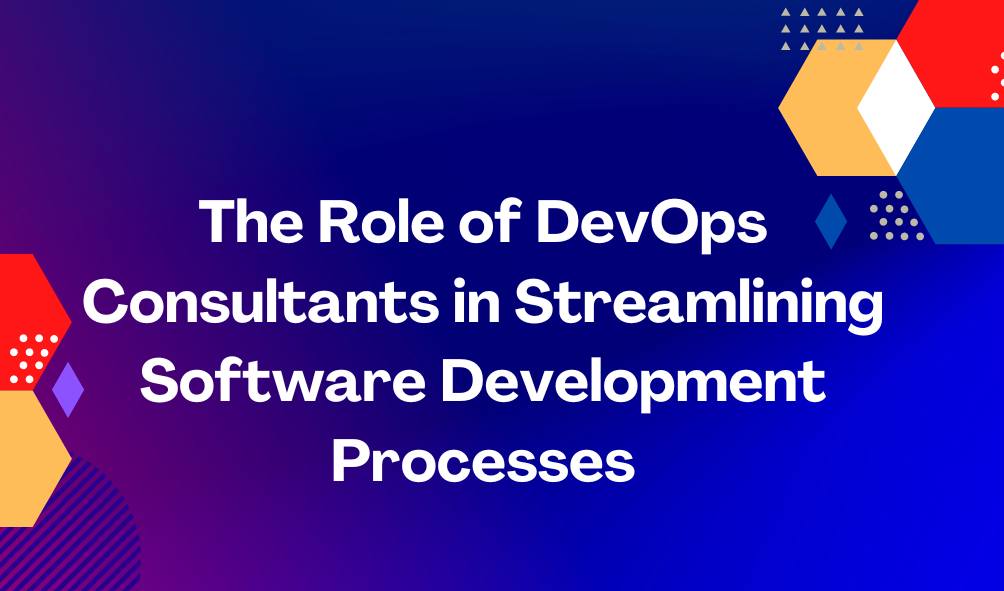In today’s fast-paced and highly competitive software industry, organizations are constantly seeking ways to improve their software development processes. One approach that has gained significant traction is the adoption of DevOps methodologies. DevOps emphasizes collaboration, communication, and automation to enable faster and more efficient software delivery. To successfully implement DevOps practices, many organizations turn to DevOps consultants for their expertise and guidance.
In this article, we will explore the crucial role played by DevOps consultants in streamlining software development processes.
Assessing Current Processes:
DevOps consultants begin by conducting a thorough assessment of an organization’s existing software development processes. This involves evaluating the efficiency of various stages, identifying bottlenecks, and understanding the specific pain points faced by development and operations teams. Moreover, Through careful analysis, consultants gain insights into areas that require improvement and develop a customized roadmap for the organization.
Facilitating Collaboration and Communication:
devops consultants play a vital role in fostering collaboration and improving communication between development and operations teams. They introduce agile practices, such as daily stand-up meetings, where team members can discuss progress, challenges, and dependencies. Consultants also encourage the use of collaborative tools and platforms that enable real-time communication and information sharing. By breaking down silos and promoting cross-functional collaboration, DevOps consultants help create a culture of shared responsibility and collective ownership.
Implementing Infrastructure as Code (IaC):
Infrastructure as Code (IaC) is a fundamental DevOps principle that enables the automation and management of infrastructure resources through code. DevOps consultants assist organizations in adopting IaC practices, leveraging tools like Terraform or CloudFormation to define infrastructure requirements in a declarative manner. By treating infrastructure as code, organizations can achieve consistent, reproducible, and scalable infrastructure deployments, reducing manual errors and enabling faster provisioning and configuration changes.
Enhancing Monitoring and Incident Management:
Effective monitoring and incident management are crucial for maintaining the stability and performance of software systems. DevOps consultants help organizations implement robust monitoring solutions, ensuring that metrics, logs, and alerts are appropriately captured and analyzed. They also assist in establishing incident response processes, including incident triaging, root cause analysis, and post-incident reviews. By proactively monitoring systems and responding swiftly to incidents, organizations can minimize downtime and optimize their overall software delivery process.
Providing Training and Knowledge Transfer:
DevOps consultants not only implement technical solutions but also focus on building internal capabilities. They provide training sessions, workshops, and knowledge transfer activities to upskill development and operations teams. By sharing best practices, tools, and methodologies, consultants empower organizations to independently sustain and improve their software development processes even after the engagement concludes.
Evaluating and Implementing Tools and Technologies:
DevOps consultants possess deep knowledge of various tools and technologies that can enhance software development processes. They evaluate the organization’s existing toolset and identify areas where improvements can be made. Consultants recommend and implement suitable tools for version control, automated testing, deployment orchestration, configuration management, and monitoring. Furthermore, By leveraging the right set of tools, organizations can streamline their workflows, reduce manual effort, and increase efficiency.
Driving Cultural Transformation:
DevOps is not just about adopting new processes and tools; it also requires a cultural shift within an organization. DevOps consultants play a pivotal role in driving this cultural transformation. They educate stakeholders and team members about the principles and benefits of DevOps, emphasizing the importance of collaboration, shared responsibility, and continuous improvement. Consultants foster a culture of trust, transparency, and innovation, encouraging teams to embrace change and adopt new ways of working.
Continuous Improvement and Optimization:
The role of DevOps consultants extends beyond the initial implementation phase. They continuously monitor and evaluate the effectiveness of the implemented processes and make recommendations for further improvement. Through data analysis, feedback loops, and performance metrics, consultants identify areas for optimization and suggest refinements to the CI/CD pipeline, infrastructure provisioning, monitoring, and incident management. This iterative approach ensures that software development processes remain agile, adaptable, and aligned with evolving business needs.
Conclusion:
DevOps consultants play a critical role in streamlining software development processes. Through their expertise, they assess current practices, design and implement CI/CD pipelines, facilitate collaboration, promote infrastructure automation, enhance monitoring and incident management, and provide training and knowledge transfer also with job consultancy in usa. By leveraging the guidance of DevOps consultants, organizations can achieve faster, more efficient software delivery, increased collaboration, and improved overall productivity. With their support, businesses can navigate the complexities of modern software development and embrace the benefits of DevOps methodologies.





